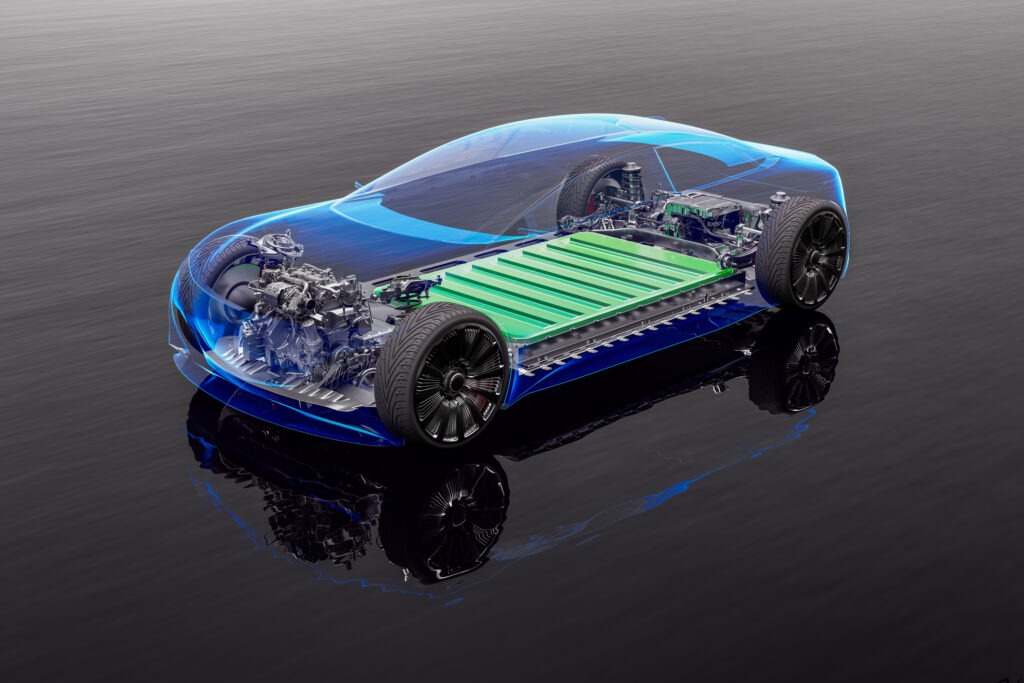BYD dominates China’s EV market as price cuts take effect
03 May 2024

As BYD cuts the prices of its electric vehicles (EVs) in China, other manufacturers suffered in March. José Pontes, data director at EV Volumes (part of J.D. Power), looks at the impact on registrations with Autovista24 special content editor Phil Curry.
EVs, made up of battery-electric vehicles (BEVs) and plug-in hybrids (PHEVs), recorded strong growth in China during March. The market ended the month with registrations up 29% compared to the same month in 2023, with 743,289 deliveries.
PHEVs jumped 62% year on year, while BEV figures increased by 16%. This performance helped EVs take a record 43% share of the overall passenger-car market, which totalled 1.7 million registrations in March. Of this, BEVs accounted for 28% of deliveries. However, in the plug-in market, the strong PHEV result disturbed the balance slightly. BEVs made up 64% of EV registrations in March, below the average 67% recorded so far this year.
In the first three months of 2024, EV registrations grew 36% in China, with a tally of 1.9 million deliveries. This equates to a 39% share of the market, with BEVs holding 26%. With this performance, the plug-in market can be expected to end the first half of 2024 with a market share above 40%.
Top three celebrate in China
To highlight the impressive performance of the EV market in March, the three best-selling vehicles overall in China were plug-in models. In the top 10, only four featured an internal-combustion engine (ICE).
At the top of the list was the BYD Song, with 62,622 registrations in March. Of this, 11,244 deliveries were attributed to the BEV variant. Whether the Song can continue to lead the market depends on the success of its competition, especially from within BYD itself.
The upcoming Sea Lion 07 and Denza N7 could cut into the current market leader’s advantage. However, the Song’s recent price cuts may help it continue to achieve high sales figures.
In second place, the BYD Qin Plus scored a total of 50,394 deliveries in March. A total of 16,910 of these came from BEVs. This was a record result for the long-running model. It benefitted from recent price cuts, with the carmaker looking to lower costs to around the same level as ICE models.
Third place in both the EV and overall market tables went to the Tesla Model Y. The BEV saw 47,917 units registered in March, as it reached a peak at the end of the quarter.
This allowed Tesla to remain relevant in the Chinese market, which seems reluctant to adopt the refreshed Model 3. The sedan ended the month in 11th with 14,481 deliveries, as it struggled to find its place in the market. It may be for this reason that Tesla has ruled out refreshing the Model Y, fearful of potential negative perceptions of possible changes to the crossover.
BYD dominates the chart
The top three EVs were some way ahead of the competition in March. BYD models filled fourth to seventh place, as the brand dominated its domestic market. Topping this run was the BYD Seagull with 27,866 deliveries, as the focus for this model turns to export markets.
This was followed by the BYD Yuan Plus with 21,951 registrations. It enjoyed some success ahead of the launch of the Yuan Up, which could cannibalise sales in the coming months.
In sixth was the BYD Han, with 20,376 deliveries in March coming from both BEV and PHEV variants. This was followed by the BYD Destroyer 05, which set a record with 18,803 units for the month. This meant that six BYD models featured in the top seven, a strong performance from the brand.
Casualties in top 20
At the hands of this strong showing, there were casualties. The Aito M7, a regular presence in the EV top five over the last few months, sank to eighth with 18,512 units. Li Auto’s best performer, the L7, fell from eighth in February to 17th in March with 10,768 registrations.
The Denza D9 returned to the table in 18th place, thanks to 10.036 deliveries, adding another model to BYD’s domination. Meanwhile, the third car from a non-domestic brand was the Buick Velite 6. It ended the month in 20th place with 8,035 units registered. This means the top 20 EVs in China were made up of just domestic and US carmakers.
Models such as the Wuling Starlight, Geely Galaxy L7, Chery Fengyun A8 PHEV, and Geely Panda Mini, disappeared from the monthly top 20 EV chart. This could be due to the price cuts seen amongst its competitors, namely BYD.
Outside the top 20, there were several models of note. The Aito M9 posted a record 5,446 registrations in March. The Zeekr 001 received a recent refresh, with the flagship model delivering 7,503 units in the month. Meanwhile, Changan’s new EV brand, Qiyuan, had its A05 sedan reach 5,622 deliveries, which is a good start for the new division.
Quarterly movements
The EV chart for the first quarter of 2024 appeared similar to the top 20 in March. The top four positions were the same, with the BYD Song comfortably leading the way, thanks to 136,920 registrations. This is followed by the BYD Qin Plus, with 107,489 units, and the Tesla Model Y with 100,366 deliveries.
The BYD Seagull was the first to change positions in the first three months of the year. It moved up to fourth thanks to 70,319 registrations. It surpassed the Aito M7, which dropped to fifth place at the end of the quarter with 69,592 units.
Another BYD on the rise was the Yuan Plus, which jumped two positions to sixth with 46,992 units. It surpassed the Wuling Mini EV, which recorded 44,215 deliveries in the quarter, and its BYD Dolphin sibling, which reached 38,271 registrations.
The BYD Han sedan was up to ninth, a four-position jump made thanks to its 37,594 deliveries. Meanwhile, the BYD Destroyer 05 improved eight positions in just one month, from 19th in February to 11th at the end of the quarter. Over the first three months of the year, the model has secured 32,156 registrations.
Further down the top 20, BYD continued to dominate, with the Tang SUV re-joining the table in 17th with 25,482 deliveries, and the Denza D9 MPV back in the best-sellers chart at 20th, thanks to its 22,615 registrations.
The only non-BYD model that managed to climb the table was GAC’s Aion S, which was up three spots to 15th, with 29,754 registrations, surpassing its Aion Y sibling’s 28,880-unit total in 16th.
BYD bags brands top spot
Following its domination of the EV chart in March, BYD led the best-selling brands’ table with its EV market share reaching 29.3% in the first quarter. This was up from the 28.3% recorded in February, suggesting this stronghold is unlikely to end any time soon.
Despite uncertainty over the Model 3 refresh, Tesla saw its market hold increase in March up to 7.1% from the 6.2% it recorded in February. The carmaker benefitted from a poor performance by Wuling to strengthen its grip on second place. The SAIC low-cost brand dropped from 6.2% in February to a 5.8% market share at the end of the quarter.
Geely climbed one spot to fourth place, despite also suffering a poor March. The Chinese brand claimed 4.7% of the market at the end of the month, down from its 5.2% share recorded in February.
The brand benefitted from an even worse performance by Aito. Its market share dropped to 4.4% at the end of the month, down from the 5.3% recorded in February. This highlights the brand’s dependence on its M7 model, where one poor month appears to have impacted the carmaker significantly.
In sixth, Li Auto’s grip on the market also weakened, only by a smaller margin, taking 4.3% of the market at the end of March, down from the 4.6% it held in February. The brand will be looking to surpass Aito in the coming months and return to the top five.
Fight for OEM positions
Grouping brands under their parent companies, BYD Group is again leading the market comfortably. It holds a 31.2% market share, up by two percentage points (pp) at the end of the quarter. This increase is thanks not only to its main BYD brand, but also the strong results from its premium branches of Denza, Fang Cheng Bao, and Yangwang.
Geely–Volvo is a distant runner-up, with an 8.7% share, down from 9.3%. The group is threatened by SAIC, which has 8.4% of the market in third, although the carmaker also saw this share fall, from 8.9%. Both OEMs are being badly hit by BYD’s recent price war. Tesla accounted for 7.1% of all EV deliveries, up from 6.2%, surpassing Changan into fourth place. However, the Chinese group saw its new Qiyuan brand help it to stay afloat, as it took 6.7% of the market, up 0.1pp.



